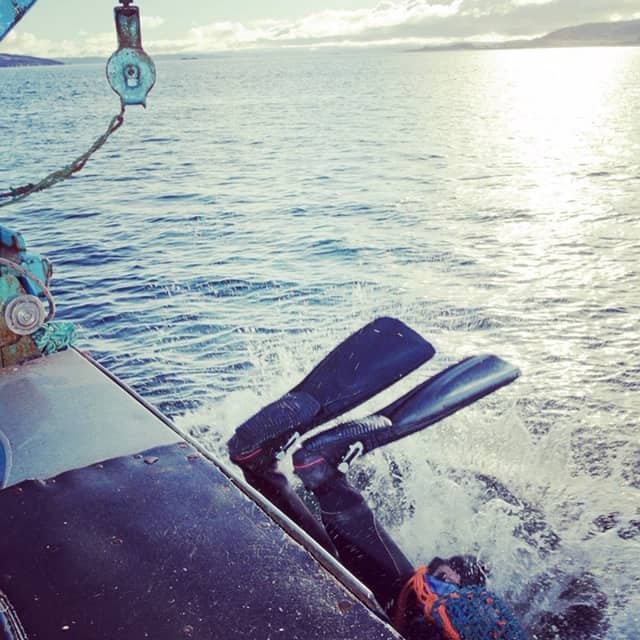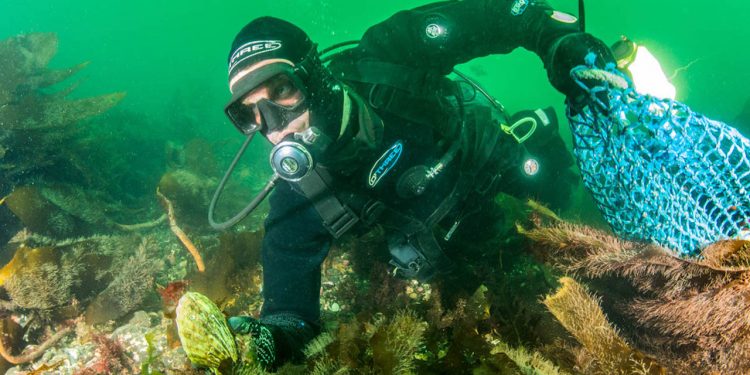Launched by Guy Grieve and Juliet Knight in 2010 as a venture dedicated to putting ethics at the centre of its priorities and would never sell seafood that had come at the cost of the marine environment, the Ethical Shellfish Company has called it a day.
The company started life dive fishing for scallops around the Isle of Mull, with the hand-picked scallops delivered to chefs in Edinburgh and Glasgow before expanding to supply some of the best chefs around the UK.
In a newsletter to the company’s customers and suppliers, Guy Grieve said that while running an ethical fishing business ‘presents real challenges which, when combined with the events of the past few years, have in the end defeated us. We thought it would be worth setting out the reasons as we see them why our model has not worked in the long term.’
Counting up the challenges, he said that Covid spelled the beginning of the end for the business as the restaurant market came to a halt overnight.
‘We tried our hardest to replace this by building a home delivery service to enthusiastic and supportive customers it was still a massive reduction in our sales. More serious still, and as a direct consequence of Covid, was the loss of our boats, which we had to sell to keep us afloat during this period,’ he said.

‘Our main fishing boat had a hefty bank loan against it, and faced with the huge loss of sales we were unable to keep up with repayments. There was no choice but to sell it to clear our loans and in the end both boats had to be sold to achieve this.’
Although Covid is at the top of the list, he said the second major reason is Brexit.
‘We weren’t too worried when we sold our boats, as we had a solid supply base from other small dive fishing boats working up and down the West Coast,’ he said.
‘However, several of these operations relied on European crew, who left the UK during Covid and then weren’t able to return. This left drastic crew shortages which in the end caused our main supplier to quit fishing altogether and leave Scotland. It also made it even more difficult to staff our small operation on Mull.’
According to Guy Grieve, this is closely linked to what he refers to as the ‘scourge of second homes means that houses stand empty for months waiting to be populated by holiday makers in the summer.’
This makes it virtually impossible to attract staff to the islands, but an explosive growth in holiday accommodation following Covid has made it even worse.
‘We tried to find people to work for us on Mull but with nowhere to stay it is nigh-on impossible to attract people to move there. Meanwhile real working people, who would contribute to the community, struggle to find places to stay, and any homes that come on the market are snapped up at inflated prices as second homes. It felt like the final insult when in the end we were asked to leave our business premises so that it could be turned into – you guessed it – yet another holiday home,’ he said, adding that recent changes to legislation relating to scallop diving have made it much harder to set up as a dive fisherman.
To this can be added global warming.
‘In our twelve years running a dive fishing business we have seen a definite deterioration in the weather, with increasingly strong winds making fishing impossible for long stretches through the winter months. We have no doubt this is the effect of global warming,’ he said.
‘There is also a general decline in shellfish stocks which is in no small part the result of poor fisheries management, with damaging fishing methods such as scallop dredging and trawling allowed to continue in 95% of our waters, decimating our inshore fisheries. Unfortunately it remains the case that large-scale fisheries and bulk supply are still encouraged by our government, with little support or encouragement for small scale fishermen who are fishing responsibly with care for the environment that supports them,’ he commented.
‘After twelve years in this sector we find it depressing that so little progress has been made in terms of marine environmental protection. Sometimes it feels like a very messed up world when the things that matter most are so neglected.’









